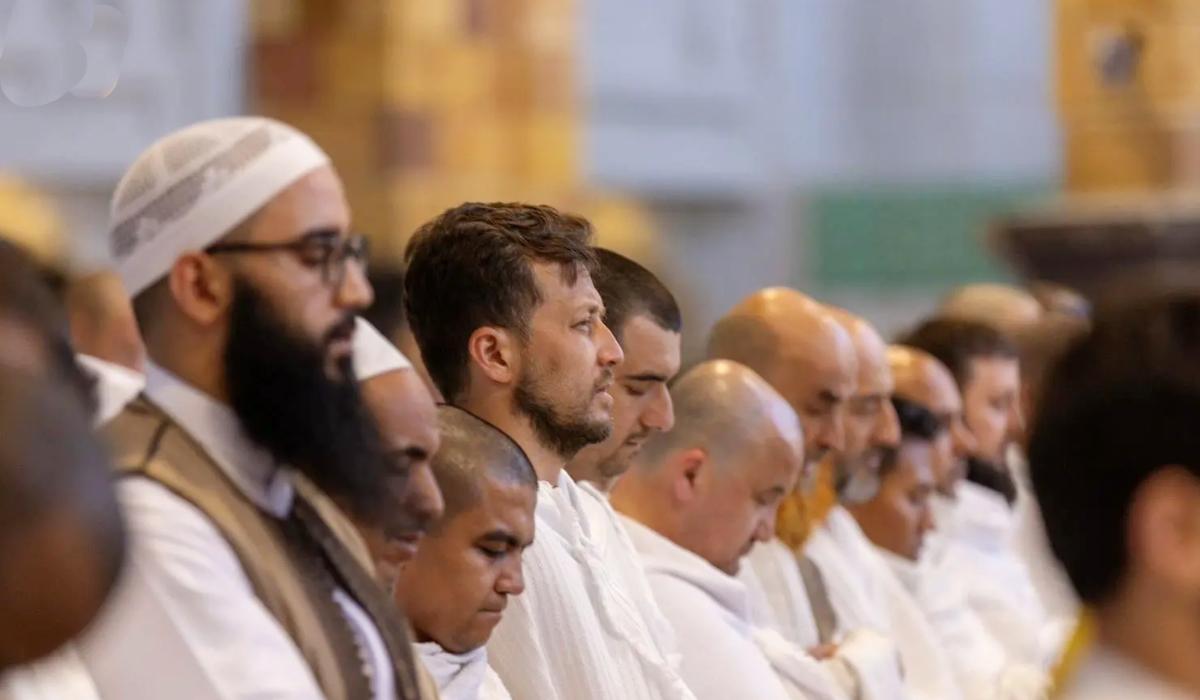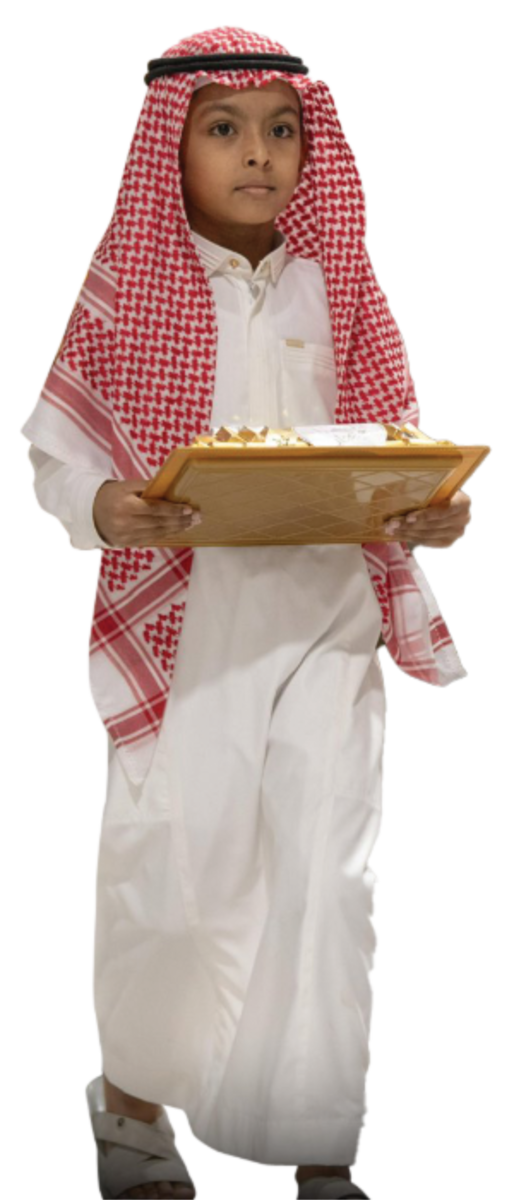MAKKAH: An atmosphere of love, diversity, and joy permeates the sacred precincts of the Grand Mosque as pilgrims from across the globe converge to experience Eid in this unique spiritual setting.
The first day of Eid commenced with dawn prayers at the mosque, where throngs of worshippers in white ihram garments — symbolizing unity and detachment from worldly matters — gathered in devotion.
Pilgrims exchanged warm congratulations and prayers, asking Allah to accept their worship and bless them in the coming year.

Throngs of worshippers gathered at the Grand Mosque to celebrate Eid and perform Umrah rituals. (Supplied)
Following the Eid prayer, jubilation spread throughout Makkah’s streets, which teemed with pilgrims expressing their happiness through prayers and greetings in numerous languages.
This vibrant display embodied the rich cultural diversity that characterizes the Grand Mosque, creating an atmosphere of profound spiritual tranquility.
Many pilgrims took the opportunity to complete their Umrah rituals or circumambulate the Kaaba.

A vibrant display embodied the Grand Mosque's rich cultural diversity, creating a serene spiritual atmosphere. (Supplied)
The celebrations included both religious observances and social activities. After prayers and circumambulation, some pilgrims visited other sacred sites like Jabal Al-Noor (Mountain of Light) and the Cave of Hira, while others explored Makkah’s bustling markets to purchase gifts and souvenirs.
These marketplaces pulsed with energy as worshippers bought prayer beads, copies of the Qur’an, oud, and traditional Makkah sweets.
Nasser Bukhari, a clothing merchant in the central district, observed that pilgrims proudly wear attire traditional to their homelands, transforming the Grand Mosque into a living canvas of Islamic diversity.
HIGHLIGHTS
• Following the Eid prayer pilgrims expressed their joy through prayers and greetings in numerous languages.
• Makkah’s hotels and restaurants thrive during Eid, offering celebratory meals.
• Visitors gather around breakfast tables laden with dates, maamoul cookies, and Saudi coffee, while others seek out popular local dishes.
Some don white jalabiyya dresses, while others appear in vibrantly colored, embroidered traditional garments.
Women often choose colorful abayas adorned with intricate patterns reflecting their cultural heritage, with some combining traditional dress with abayas as a celebration of the joyous occasion.

The celebrations included both religious observances and social activities. (Supplied)
The city’s hotels and restaurants thrive during Eid, offering special celebratory meals. Visitors gather around breakfast tables laden with dates, maamoul cookies, and Saudi coffee, while others seek out popular local dishes.
Traditional Makkan confections such as laddu, mushabbak, zalabiya, and debyaza are abundant, as pilgrims of all nationalities unite as one family bound by faith.
The humanitarian spirit of Eid is evident throughout the city, with volunteers distributing gifts and sweets to children and providing meals to those in need, while some pilgrims visit hospitals and orphanages bearing gifts and assistance.
The organization is impeccable, with the flow of millions of pilgrims proceeding smoothly and efficiently.
Yahya Noor, Syrian physician
As night falls, the illuminated Grand Mosque creates a breathtaking spectacle. Pilgrims continue their devotions or stroll through the mosque’s courtyards, savoring the atmosphere.
Yahya Noor, a Syrian physician, described the Eid celebrations in the city: “Here in Makkah, Eid extends beyond congratulations and festive foods to encompass charitable works and solidarity.
“Witnessing volunteers distribute gifts and meals to the needy made me feel part of a vast Islamic community that genuinely cares for its members.
“The organization is impeccable, with the flow of millions of pilgrims proceeding smoothly and efficiently,” he continued.
“When I entered the Grand Mosque at Eid dawn, I was moved to tears. Seeing the illuminated Kaaba surrounded by reverent worshippers made me truly appreciate this sacred place’s magnificence.
“The exchange of blessings and the atmosphere of love made me feel as though I were among family.”


























